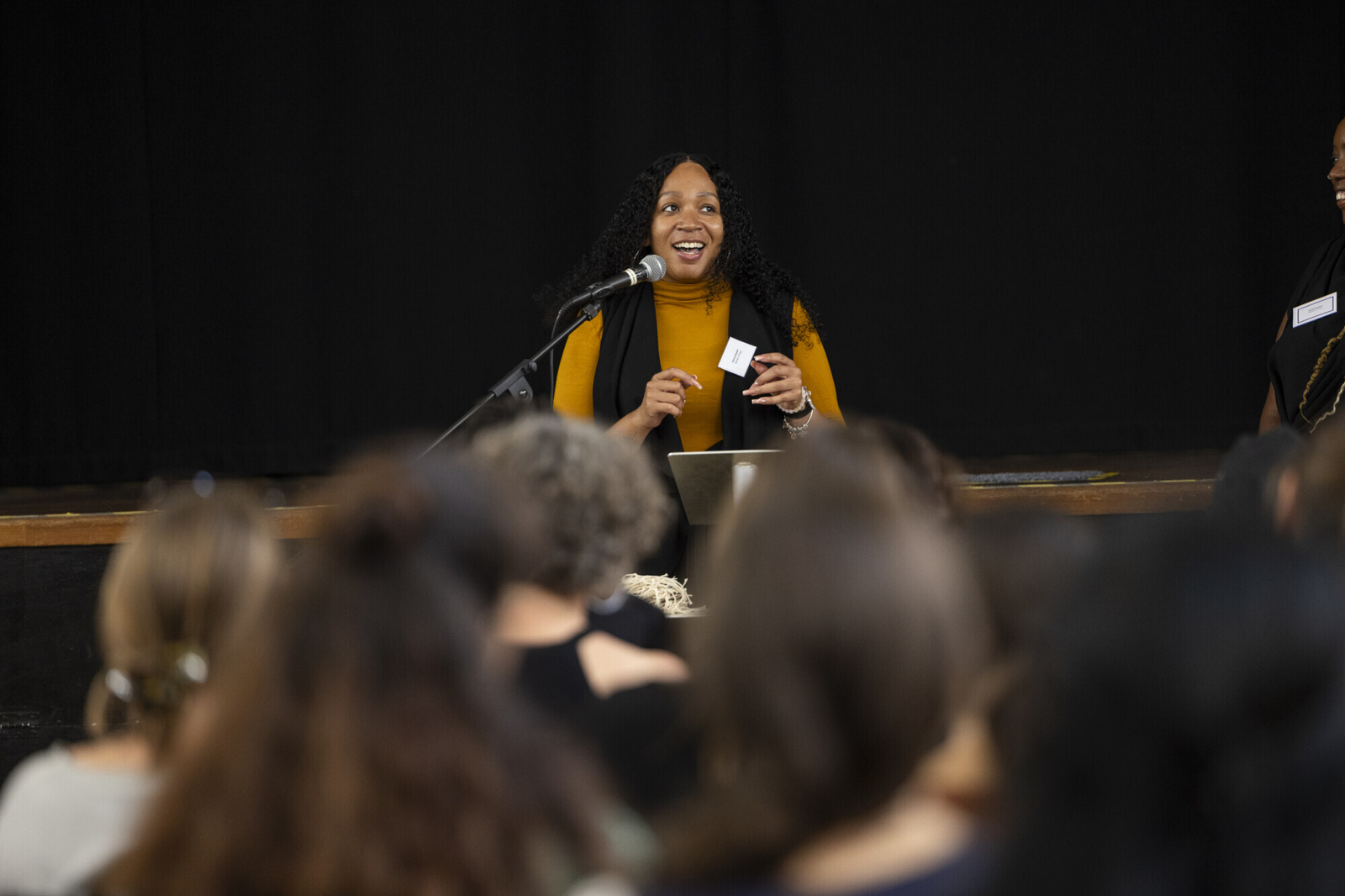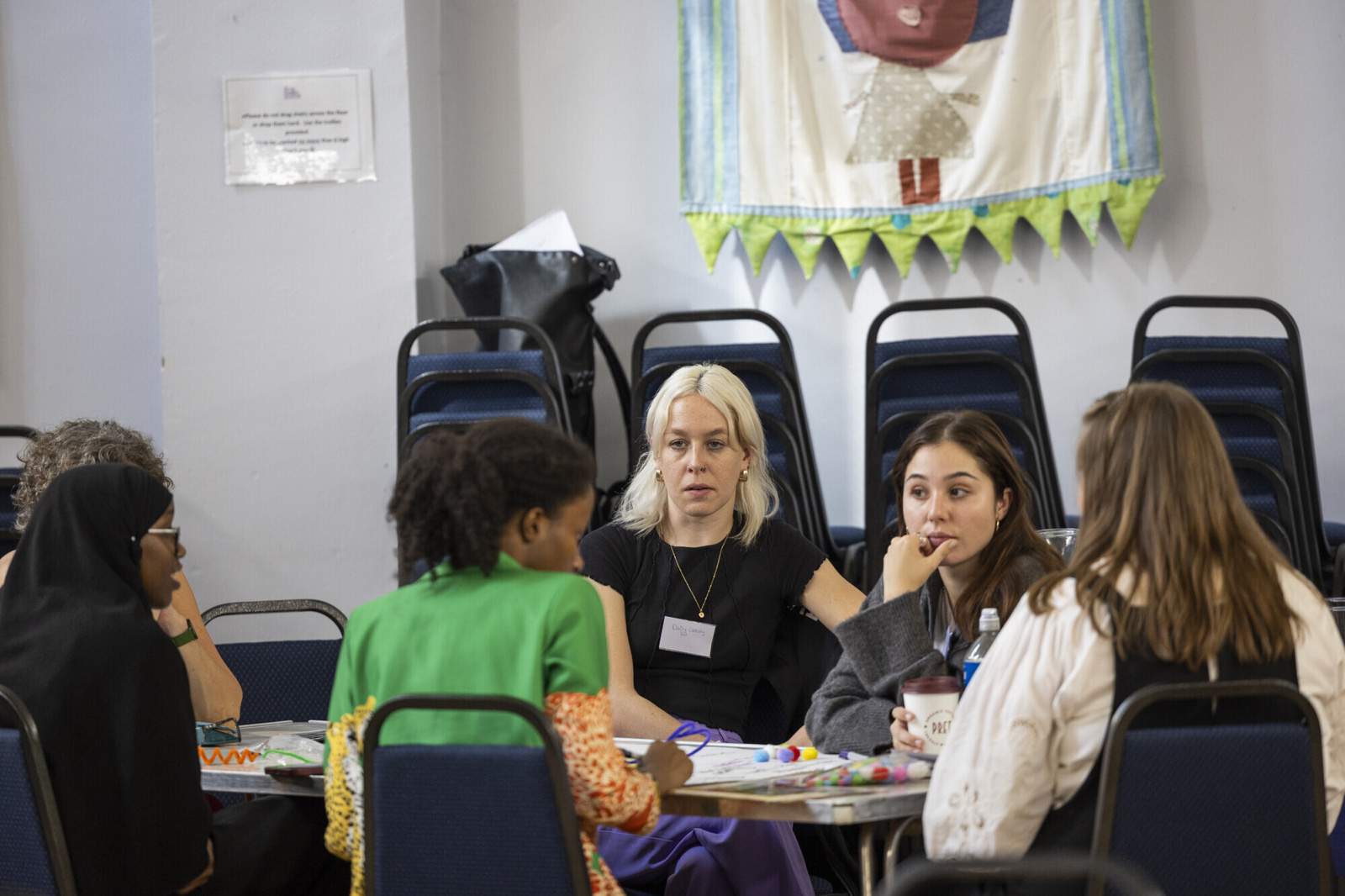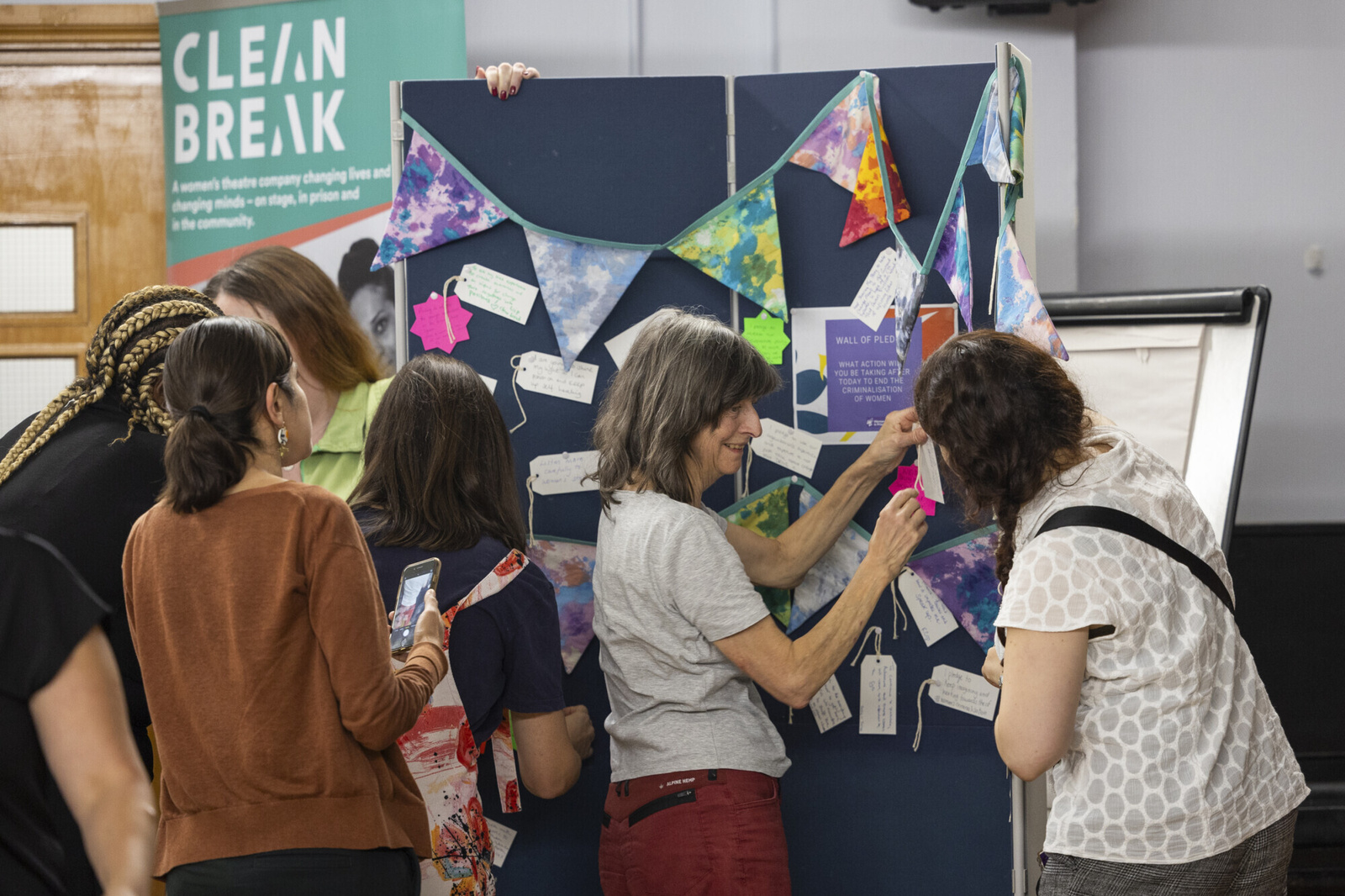
Can we create a future where no women are criminalised?
October 2024. Words by Sonya Ruparel, CEO of Women in Prison.
I’m aware the title of this blog is provocative, and to some will seem radical beyond all realistic possibilities. But a future in which we’ve ended the criminalisation of women is one that we, at Women in Prison, believe in. It’s a future we came together to discuss at our recent Summit on Ending the Criminalisation of Women which I was honoured to host together with Women in Prison’s partner, Clean Break.
The purpose of this Summit was to bring together social justice thinkers, organisers, community organisations and women with lived experience to elevate and discuss the solutions that we know already exist in our communities and imaginations, and to dream of a different future for women. Every person in the room knew that it was high time for change. That we had been here before with these conversations. We all know that too many women are in prison. Prison doesn’t help women, it doesn’t support them for when they leave. It doesn’t work.
It makes no sense to punish and re-traumatise women in prison, cutting them off from their community and family.
—Attempting to answer this enormous question inevitably came with questions about justice (If women commit a crime, should they not “do the time”?) and the highlighting of those rare cases of women who commit violent crimes. Those questions are important. Of course, where there is a risk to the public there will be a need for a secure environment, but for the vast majority of women this is not the case.

Let’s look at the facts:
- Black women are 1.4 times more likely to be arrested than white women, Ministry of Justice
- 57% of women in contact with the criminal justice system have experienced domestic abuse, Prison Reform Trust
- 76% of women in prison report having a mental health problem, HMI Prisons
- Self-harm is 8 times higher in the female estate than in the male estate, Ministry of Justice
- 53% of women in prison have experienced abuse as children, Prison Reform Trust
- 67% of women leaving one prison in 2023 faced homelessness or unsustainable accommodation, Independent Monitoring Board
- There was a 48% increase over 12 months of women released from prison who were rough sleeping, Nacro
For women who are criminalised and imprisoned for their experiences of structural inequalities such as racism or ableism, which are then compounded by issues of mental ill-health, abuse and poverty, it makes no sense to punish and re-traumatise them in prison, cutting them off from their community and family. In fact, they need support in their communities to overcome the structural inequalities that led them into offending in the first place.
A trauma-informed system acknowledges the root causes of women’s involvement in crime and responds with care, support, and the resources they need to heal.
—One of the strongest messages that emerged from the Summit was that real change will not come from simply tinkering with the existing system but from radically reimagining how we approach justice for women. That justice must start when she is a child in having a safe home and environment, in having support systems through schools, in having a social protection system that works, in having economic empowerment opportunities, and in having safe places to access services.
At the heart of this reimagining is the need for a trauma-informed system that prioritises safeguarding women over criminalising them.
What did we talk about?
We centred our morning conversations on the issues that women face who end up criminalised, ranging from issues that young women face, to those facing homelessness, domestic abuse, poverty, mental ill-health and substance misuse. We also talked about racism and the critical role that this plays in the criminal justice system, not only in criminalising women but through racism in the system and how it presents at all stages of a woman’s journey in criminal justice, causing ongoing harm and trauma. We recognised that women’s lives interconnect, that all these issues cross over and that holistic solutions are essential.

The majority of women in prison have histories of trauma—whether through racist violence, domestic abuse, childhood abuse, or mental health struggles. We discussed how essential it is for the criminal justice system to shift from a punitive response to one of safeguarding. As one attendee put it: “We should be asking what has happened to these women, not what is wrong with them.”
A trauma-informed system acknowledges the root causes of women’s involvement in crime and responds with care, support, and the resources they need to heal. An anti-racist system would listen to women’s lived experiences, would be more accountable and would ensure that government policies and practice hold to anti-racist approaches and principles.
We heard some powerful stories in our discussions. One case was raised in the session on housing and homelessness: a woman who had been criminalised after using force to defend herself against an abusive partner. Instead of recognising her as a survivor of domestic abuse with a mental health condition, the system treated her as the perpetrator.
We heard a heart-breaking story from a woman who was given just nine days' notice before her release, only to be told that her housing was not in their remit. She found herself navigating a complex web of agencies, only to end up sleeping on her mother’s sofa. These are the systemic failings that push women further into marginalisation and criminalisation.
Powerful points were raised about the way in which Black women are often perceived by services as complicit in their exploitation, rather than as victims.
Ending the criminalisation of women is a bold goal. But it’s not a utopian fantasy.
—Vision for 2040
In the afternoon at the Summit, we looked to the future. We imagined a justice system in 2040 where the criminalisation of women is a relic of the past. We envisioned a system that prioritises early intervention and prevention, provides women with safe and stable housing, mental health support, and access to education and employment. It’s a system where community-based alternatives are the norm, and where women have the agency to rebuild their lives, free from the stigma and trauma of criminalisation.

There’s no doubt that achieving this vision requires bold action. It requires radical empathy—from policymakers, from the media, and from the public. It requires investment in services and a commitment to co-designing these systems with the women who access them. Most importantly, it requires a belief that change is not only possible, but necessary. The room was filled with hope.
Ending the criminalisation of women is a bold goal. But it’s not a utopian fantasy—it’s a real, tangible possibility if we are willing to reimagine what justice looks like for women in England and Wales. The Summit has made it clear that we have the ideas, the passion, and the collective will to make this vision a reality. Now, we need cross-sectoral leadership and the resources to follow through.